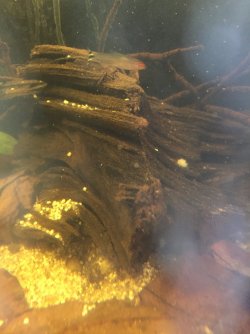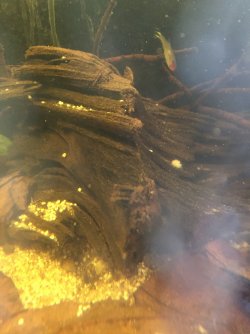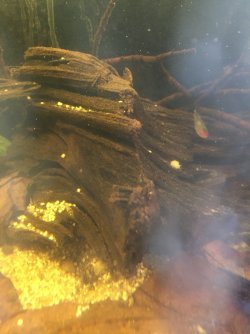Tyler_Fishman
Fish Crazy
- Joined
- Feb 21, 2017
- Messages
- 293
- Reaction score
- 52
I came home today to find my rummynose with a lump or light patch inside it? Not sure, I would like some clarification on this, cant test parameters atm besides ph which is at 6.8 not sure of the cause? Possibly my betta got it while it was sleeping? The cardinal it's with bullies it to no end, (I need more tetras)





